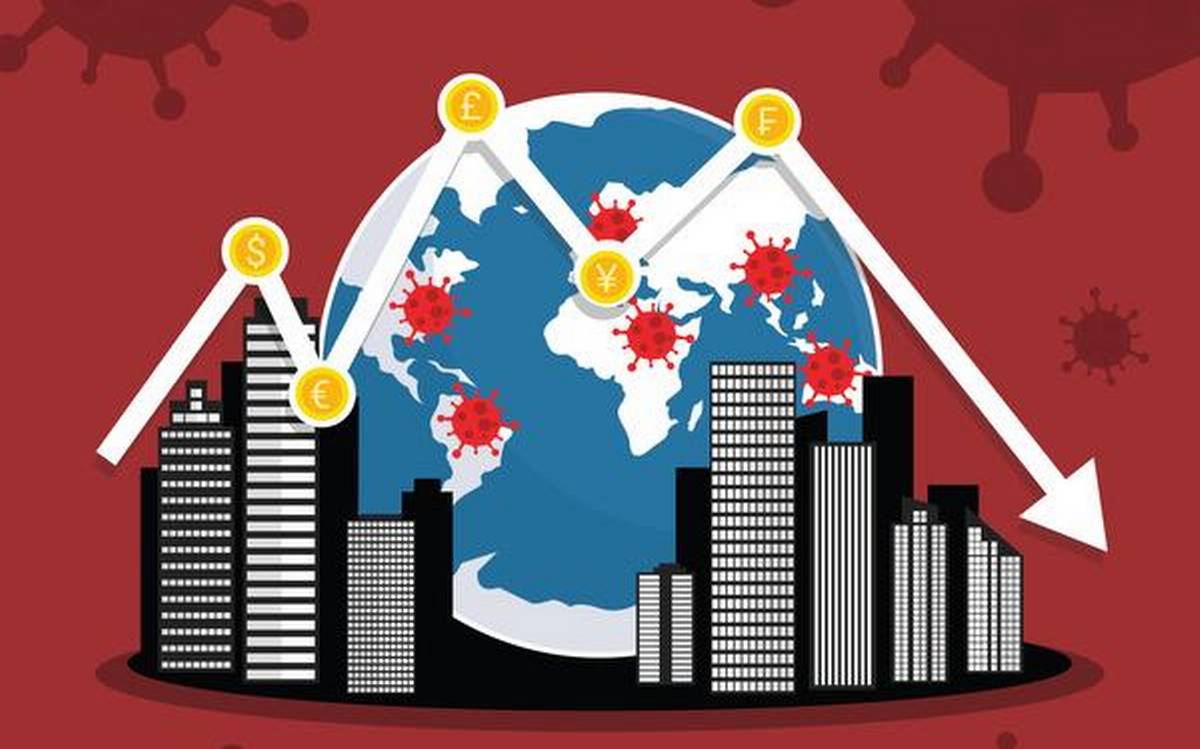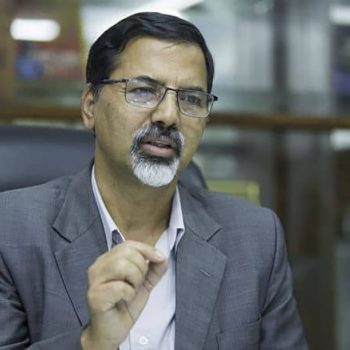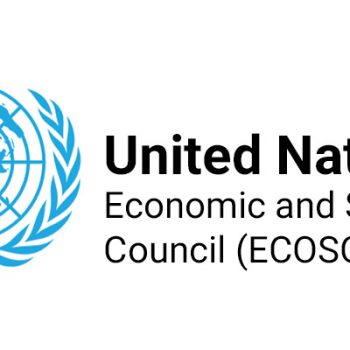Behind the 2020 Upheaval: GLOBALIZATION?

The year 2020 is bound to become a remarkable year that will go down in history, albeit not for the most positive of reasons. With the outbreak of a pandemic that originated in Wuhan, China in December 2019 and has taken over 2 million lives worldwide as of now, the aftermath has been disastrous – physically, socially, mentally, emotionally and now, also environmentally. Over 100 million people have been infected and due to regulations regarding the safety, minimization and control of the extreme drastic effects this has and may continue to have on global public heath, over half of the world was locked inside their homes for months. Nobody alive has ever before had to face something as widespread and severe as this; today’s population has seldom lived this way before. In the wake of this outbreak, it is important to introspect why this is, and one of the answers to this question might be one of the core aspects of today’s world – GLOBALIZATION.
With the outbreak of a pandemic that originated in Wuhan, China in December 2019 and has taken over 2 million lives worldwide as of now, the aftermath has been disastrous – physically, socially, mentally, emotionally and now, also environmentally.
All that has contributed to the making of what is referred to today as ‘a global village’ has contributed to the spread of this virus. What is essential to globalization is mobility; of people, goods, services, information and several other elements. Even though it seems like a modern idea, globalization is as old as humankind itself. Since the beginning of recorded time, many travelled in a bid to expand their political power, enhance their quality of life, or simply to quench thirst and curiosity. These people exchanged four key ingredients: people, ideas, commodities and capital. Today, ‘globalization’ is used to describe the interdependence of world economies, cultures and populations. Easier travel, the world wide web, the end of the Cold War, trade deals, and new, rapidly developing economies, have all combined to create a system that is much more dependent now on what is happening on the other side of the world than it ever was.
However, globalization has also been seen as an enabler of terror. This controversy may be first accounted to the 9/11 incident, which marks one of the most inglorious and deadly terrorist attacks in the history of this world. Many believe that globalization was responsible for this; the fact that a small number of people armed with box cutters can destroy the largest building in the biggest, most important city of the United States – that is a form of globalization, that they launched that plot in Afghanistan and Germany and elsewhere, and were able to take such violent action from a distance shows how integrated the world had become and still is becoming.
Over 100,000 commercial flights used to fly in the worlds’ skies normally. COVID-19 reduced this number to a bare minimum for many, many months, during which flights were only emergency and essential. This is due to the coronavirus being spread through droplets, which led to an increased number of quarantines and regulations for social distancing since large crowds are instrumental in increasing the number of infections. People were restricted from traveling far and wide, borders were locked and everything essentially seemed to be facing impacts.
In an article published by the BBC titled “Will Coronavirus Reverse Globalization?’, the words of Professor Beata Javorcik, Chief Economist at the European Bank for Reconstruction and Development, have been cited. She states that the pace of change in the global economy over just the past 17 years has been profound. “When we look back at 2003, at the SARS epidemic, China accounted for 4% of global output,” she says, “Now China accounts for four times as much, 16%. So that means that whatever is happening in China affects the world to a much larger extent.” Another reference made by the same article, written by Jonty Bloom, are the words of Prof. Richard Portes, Professor of Economics at London Business School. He says, ‘”Look at trade. Once supply chains were disrupted [by coronavirus], people started looking for alternative suppliers at home, even if they were more expensive. If people find domestic suppliers, they will stick with them… because of the perceived risks.” While this is good news for many, it is not so for everybody – especially those dependent on globalization, like most western economies.
Yuval Noah Harrari, a popular historian and philosopher seems to believe the opposite. In his article titled “In the Battle Against Coronavirus, Humanity Lacks Leadership” published by Time Magazine, he puts forward ideas and logic that go against the belief that globalization is responsible and solutions for the pandemic and its effects must include de-globalization. He believes that epidemics like smallpox and the flu largely affected the world even before increased globalization, going on to reflect that despite outbreaks such as AIDS and Ebola, loss of human lives proportional to the population due to pandemics is much smaller in this century than it has ever been. The most powerful words from his article, I believe, are – “This is because the best defense humans have against pathogens is not isolation – it is information. Humanity has been winning the war against epidemics because in the arms race between pathogens and doctors, pathogens rely on blind mutations while doctors rely on the scientific analysis of information. In this moment of crisis, the crucial struggle takes place within humanity itself. If this epidemic results in greater disunity and mistrust among humans, it will be the virus’s greatest victory. When humans squabble – viruses double. In contrast, if the epidemic results in closer global cooperation, it will be a victory not only against the coronavirus, but against all future pathogens.”
The key point that emerges from a deeper analysis of the recent events shows that globalization has to be taken within the right context and meaning. The biggest threat it faces is narrow-mindedness from the mightiest of nations. The very start of this pandemic is shrouded in secrecy. Every effort was made to obscure its origins. Games of hyper-nationalism are being played. So, the biggest threat to globalization is vested interest, narrow-minded ideologies and lack of a cohesive long-term vision amongst the political elite.
Even the most astute of scholars have overlooked the fact that the rise of this pandemic has its roots in suppression of the flow of information. Perhaps, if the information was timely and adequate – the response may have been more apt. The World Health Organization cannot be totally liberated from this collusion, to an extent. Nor can we forget the withdrawal of the US led by Trump from the WHO, as a reflex prompted by short-term thinking.
Globalization is a term that is all inclusive, it includes the free flow of information and ideas and yet the coronavirus pandemic aptly proves that this is not so. Coronavirus mitigation might have become much more apt – had the actors truly acted in a globally appropriate mindset. So, one cannot consider globalization to constitute the economic/travel aspect alone and exclude information sharing. If globalization was indeed what people say it is, would the WHO inspectors be fighting a rising tide of intolerance and resistance? If the global order was truly open, wouldn’t Former US President Trump be more charitable instead of getting into a blame game?
The biggest casualty has been the flow of open-minded dialogue and research. If there is no scrutiny with a keen mind, then one cannot analyze anything objectively. Globalization cannot be a physical concept without taking into account the mental aspect. Humanity has to think, act, reason, behave, exchange information and communicate with a broader thought-prism than the one we currently have.
If globalization was indeed what people say it is, would the WHO inspectors be fighting a rising tide of intolerance and resistance? If the global order was truly open, wouldn’t Former US President Trump be more charitable instead of getting into a blame game?
Personally, I agree with Yuval Noah Harrari’s stance on how you cannot protect yourself by permanently closing your borders, for this will affect a large number of aspects of this world. And while such pandemics are deadly and tragic, human life today is dependent on a lot of other factors that globalization has positively contributed to. Even regarding the pandemic itself, it is a matter of perspective, after all – the numbers (death, infections) certainly point towards this core element. However, I am of the opinion that globalization is being wrongly accused of worsening the scenario. Many factors go into making 2020 the chaos that it was, but looking at globalization in its completeness, I believe that it cannot be considered the sole culprit. It is an unalienable phenomenon, integral to the world today. No matter what, it is something we must live with! And while it may be true that the mobility of a lot of factors are behind the coronavirus spreading like wildfire – with vaccines being developed in some parts of the world through extensive research, development and experimentation backed by science and technology transfer, the fact that their distribution is as convenient and might gradually become universally accessible shows that globalization has been instrumental in the control of the pandemic too. With something as inevitable as this, we must find ways to make it work in our favor in order to combat the pressing issues today’s world faces. Thus, it has self-justified its role, despite the contrary beliefs. Weighing the pros and cons is essential for critical and holistic analysis, and I believe that the pros of globalization certainly outweigh the cons.















